There are several invasive plants that have been found in South Florida and can be destructive to your Palm Beach property.
One of those invasive and destructive plants is called the air potato vine, a non-native vine with heart shaped leaves, a fast growth rate, bulbils that grow on the vine, and tubers similar to yams that grow underground.
In this article, we’ll cover:
- some information about the air potato,
- how to recognize the air potato vine,
- why air potatoes are considered invasive and why they’re prohibited in Palm Beach,
- where they came from and how they spread,
- what to do if you spot air potato vines on your property, and
- an insect that is helping to eradicate this invasive plant.
Continue reading to learn all about this vine and what you can do about it.
About the Air Potato (Dioscorea bulbifera)
Originating from Africa, Asia, the South Pacific, and Australia, this vine can grow so quickly that it has been observed to grow as much as 8 inches in one day! This means that air potato vines can grow to more than 70 feet tall or long.
The air potato plant is related to yams (but not white potatoes). However, the bulbils and tubers that it produces are not edible as they contain a variety of toxins.
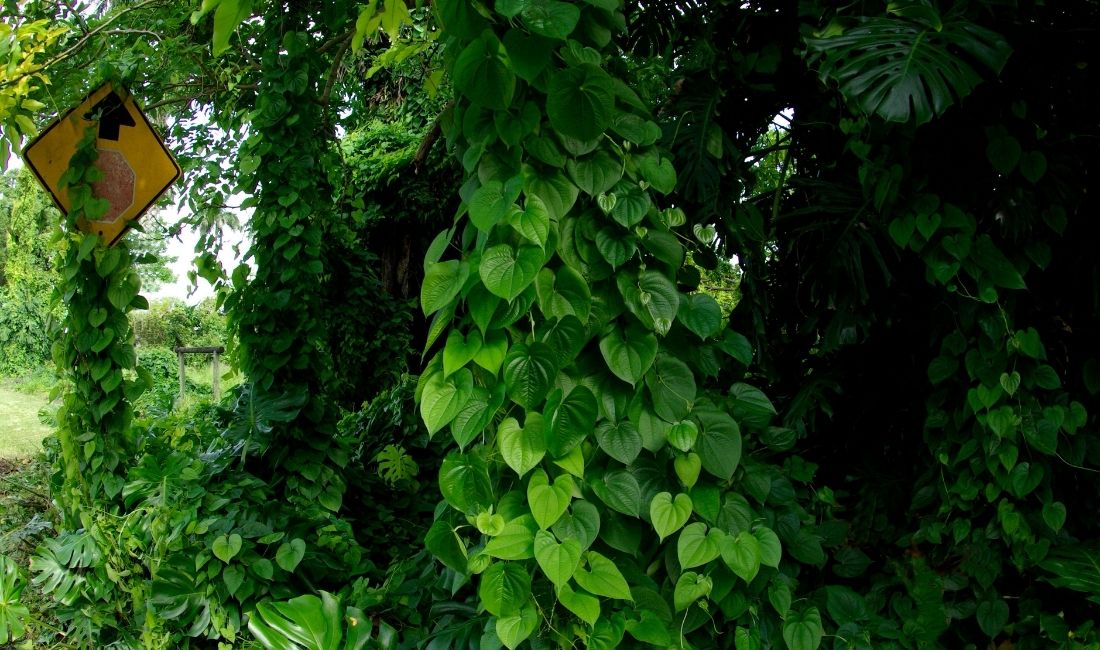
How to Identify Air Potato Vines
The air potato vine has green, heart-shaped leaves and can wrap itself around trees or cover other native plants in an attempt to receive more sunlight. It can survive in most soil types and creates bulbils (that slightly resemble potatoes) from which new vines sprout. These bulbils are light in color and can be anywhere from pea-sized to the size of a softball. The air potato also produces underground tubers that can produce new vines in the spring.
Check out this guide to properly identify air potato vines. They can sometimes be confused with native winged yam vines. One of the easiest ways to tell them apart is to check which direction the vines twist. If twining counterclockwise (right to left), it is probably an air potato vine. If, however, it twists left to right, or clockwise, it may be a variety of native yams.
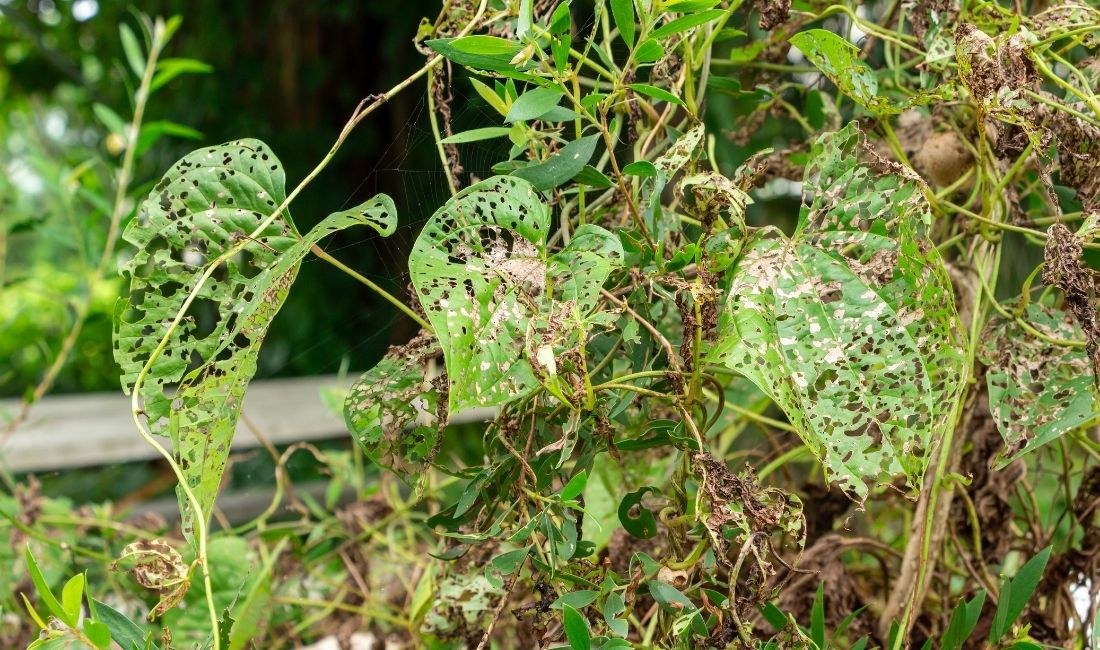
Why are Air Potato Vines Considered Invasive?
The vines can completely cover a large area, killing native understory plants that rely on sunlight. When they wrap around trees, the vines can sometimes contribute to the trees breaking and even falling, which is not only bad for the tree, but dangerous for anyone nearby!
Because the plants can grow and spread so quickly, they are difficult to control and eradicate.
Air potatoes have been classified as a noxious weed in Florida since 1999. That means that not only are they invasive and damaging to our local ecosystem, but that planting, propagating, or moving air potatoes in the state of Florida is prohibited by law. It is considered one of the most aggressive weeds ever introduced into Florida and is spreading out of control.
Air potatoes are also listed in the Town of Palm Beach Ordinances as a “prohibited” plant.
Suffice to say, you do not want this vine anywhere on your Palm Beach property.
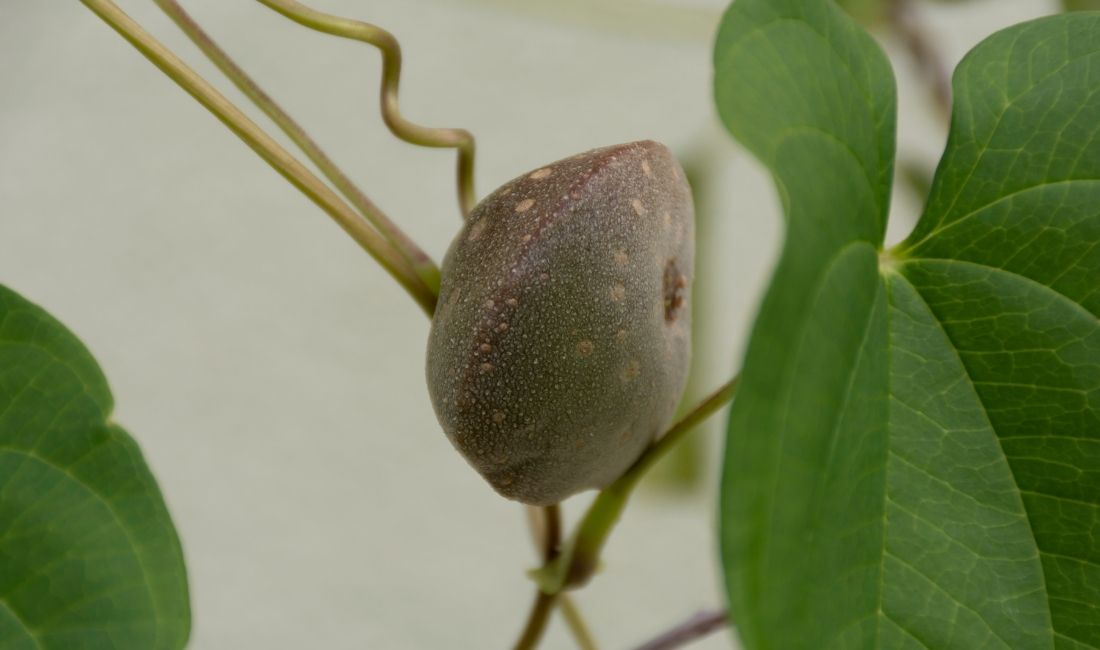
Where Air Potato Vines Came From
The air potato was introduced to Florida from Africa. In 1905, the USDA studied the rampant growth of the air potato in Florida and by 1999 it was widespread and was added to the noxious weed list. In less than a century, the vine spread to most Florida counties as well as Puerto Rico, the West Indies, tropical America, Hawaii, Texas, Louisiana, Mississippi, Alabama, and Georgia.
How Air Potato Vines Spread
Air potato vines spread so easily because they are such fast growers. As mentioned earlier, they can grow up to 8 inches a day. Both the underground tubers and the bulbils that grow on the vines can sprout new vines. That means that if a bulbil falls to the ground, a new vine can shoot up. It also means that if you remove all of the vines and bulbils from your property but don’t unearth the tubers, the tubers will simply resprout and grow a new vine.
Bulbils can also be transported to new locations by birds and other animals or strong winds. Bulbils can float so bodies of water such as rivers or streams or even ocean currents contribute to their spread.
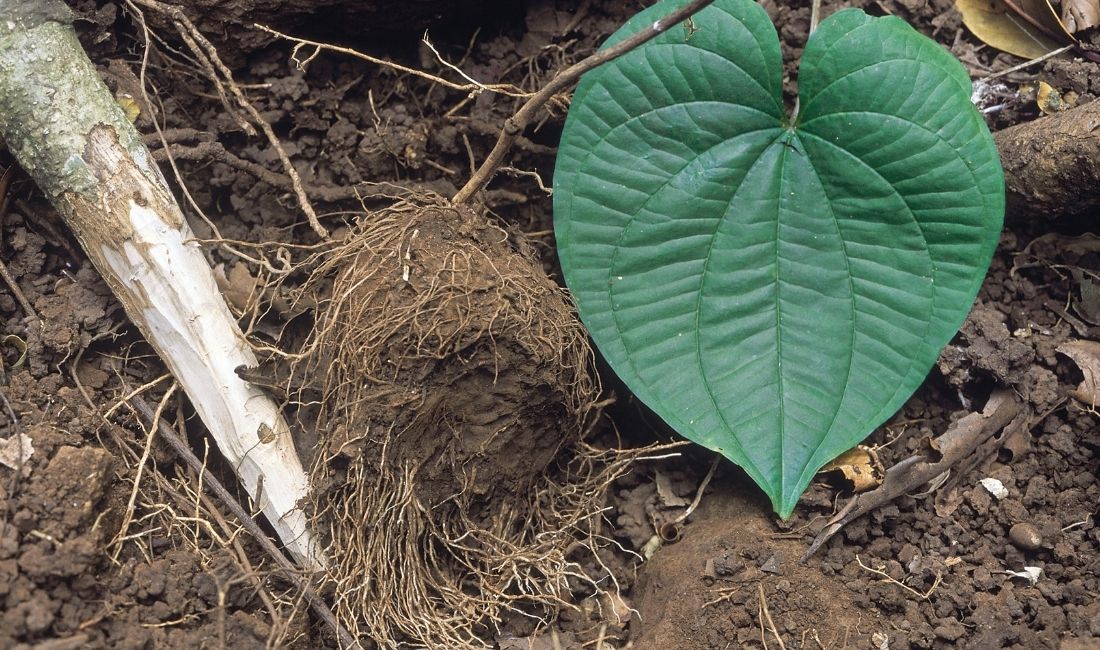
What to do if you spot Air Potato Vines on your Palm Beach Property
If you spot any air potato vines on your property, you should have them removed immediately. It is important to remove the tubers underground as well, otherwise, the plant will continue to resprout. Cut any vines away from trees if you can safely reach them. Do not try to remove the vines by burning them (yes, we’ve seen people try this!) as you will damage the plants or trees underneath.
You can inform the FDAC of the presence of air potato vines here
If you feel you want to do more to eradicate the air potato vine from Florida, there is an Air Potato Patrol made up of citizens who are helping to track air potato vines and air potato leaf beetles. They have constantly updated information on the vine, the air potato beetle, and more.
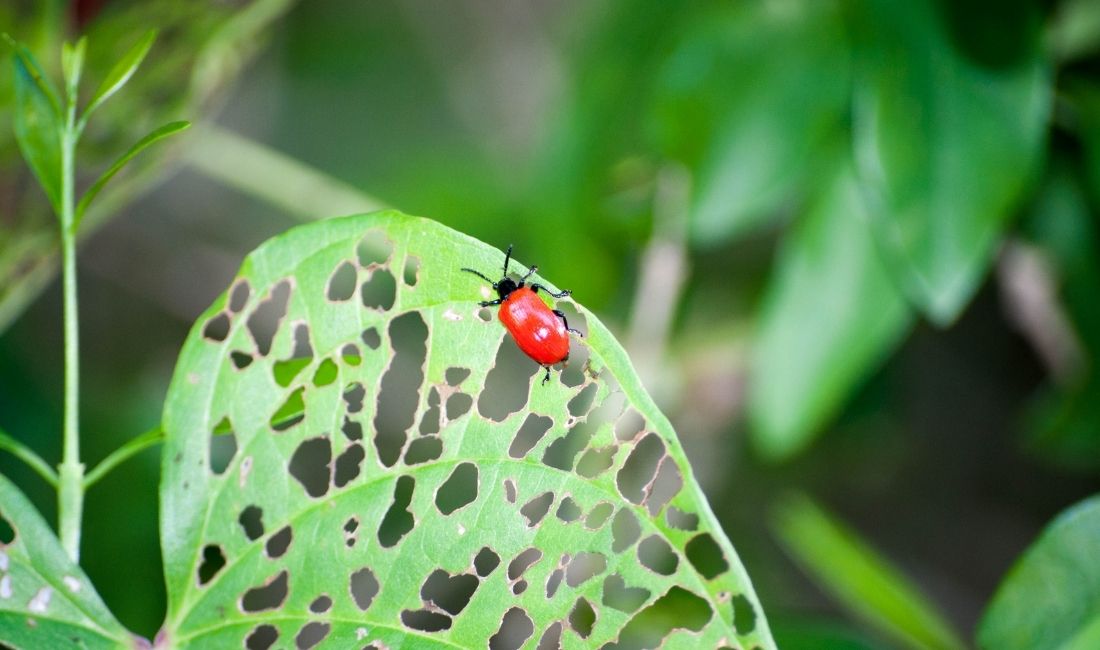
Air Potato Control: Introducing the Air Potato Leaf Beetle
Since 2021, the U.S. Department of Agriculture has been releasing an insect called the air potato leaf beetle (Lilioceris cheni) throughout Florida in an attempt to eradicate this invasive plant.
The air potato leaf beetle is much celebrated – there have even been events to celebrate its release!
The dispersion of air potato leaf beetles means that they may find your vine…but you should focus on other methods of eradication if possible! Air potato leaf beetles eat the vine, but not the bulbils. While air potato beetles have reduced air potatoes by 25 to 70% throughout Florida, the vines are still easily spread and continue to be a nuisance.
Coastal Gardens Removes Air Potato Vines
On properties managed by Coastal Gardens, air potato vines and any other invasive plants are removed and disposed of quickly – if they even appear. While invasive plants can spread anywhere, they’re much less likely to appear (and don’t spread) on properties that are well maintained and cared for and where any issues are handled promptly.
CALL US TODAY At 561-308-7604
Estate landscape Services
For Fine Properties in Palm Beach
With Coastal Gardens, you can rest easy knowing that your property is taken care of by a dedicated team of estate landscape professionals who truly care about creating and maintaining a dazzling outdoor space you can be proud of.
